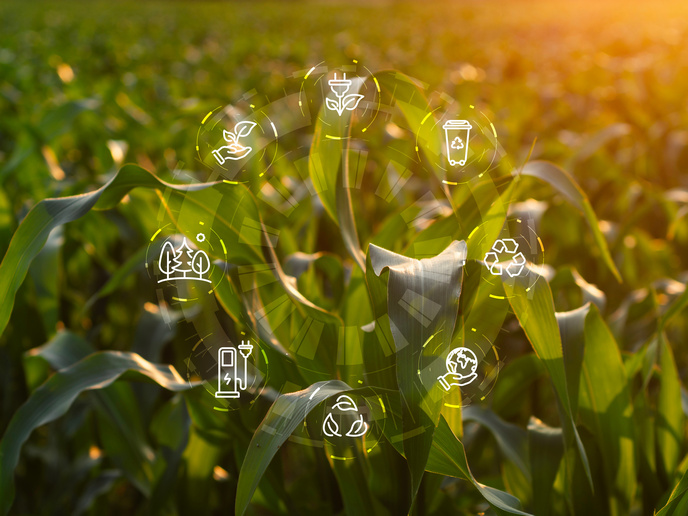Renewable energy solutions for a sustainable and circular economy
The EU-funded ECOLOOP(opens in new window) project is demonstrating how rural areas can help drive Europe’s transition to a green economy. By developing solutions that optimise the combined use of renewable energy sources (RESs) in agricultural areas, the project plans to positively impact air quality, biodiversity and soil health, while also supporting farmers and empowering local communities.
Meeting farmer needs, benefiting the environment
ECOLOOP is combining energy sources like biogas, biomass, agrophotovoltaics and geothermal energy to meet rural areas’ needs for electricity, heating, cooling, transport and waste management. The focus is on boosting self-consumption and using RESs to help farmers and foresters reduce emissions and increase carbon sequestration, while also improving biodiversity and soil health and decreasing groundwater contamination. As Sheila Sánchez of ECOLOOP project coordinator ETRA, Spain, explains in a recent news item(opens in new window), the goal is “to foster a green energy transition and circular economy in rural regions, creating jobs, advancing gender equality, restoring biodiversity, and improving resilience to climate change.” To achieve this, ECOLOOP is promoting seven tools and procedures that are being demonstrated in four diverse pilot sites in Bulgaria, Estonia, Spain and Slovenia, all with different climates, soils and farming practices. One of the project’s key innovations is the efficient conversion of agricultural and forestry waste into biomethane – a renewable, low-carbon energy source. ECOLOOP researchers are also testing the use of advanced hydrophobic membrane technology to produce vehicle-grade biomethane, with further assessments being made on the potential of currently underutilised fruit and vegetable waste as a raw material. ECOLOOP’s steps to optimise the distribution and interaction of RESs in rural areas is helping to ensure a reliable and sustainable energy supply. When integrating biogas, solar photovoltaics and geothermal energy, it is not only considering energy potential but also the local reality – soil conditions, climate, topography, land use and socio-economic factors.
Additional support
Another solution offered by the project is a digital tool to help farmers improve productivity and efficiency. The decision support system allows users to monitor and manage crop production and energy consumption remotely, reducing their farm’s carbon footprint, production time and costs. It is currently being refined and updated with new measurements for better accuracy and functionality. Besides biomethane production, RES integration and its decision support tool, ECOLOOP is supporting Europe’s green transition through another four innovations. One is a tool used to protect soil health, biodiversity and ground water quality. The tool is used to test three sustainable and economic processes to replace traditional fertilisers with other bio-based products. Another tool helps forest and landowners select the best tree species on a given soil type to maximise CO2 sequestration. ECOLOOP (ECOLOOP) also offers farmers economic and social support as renewable energy prosumers through innovative and community-based solutions. Last but not least, it supports co-creation and knowledge exchange through its Soil Living Lab, where stakeholders, researchers, and agricultural and renewable energy communities can work together to test, adapt and scale up sustainable practices related to soil health and renewable energy. For more information, please see: ECOLOOP project website(opens in new window)



